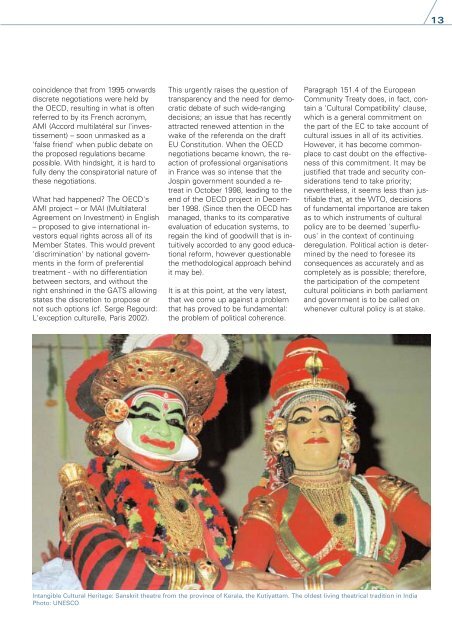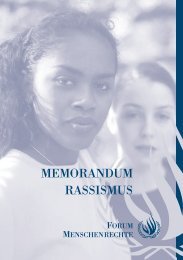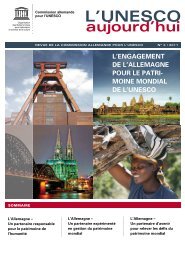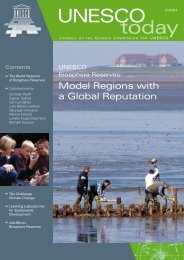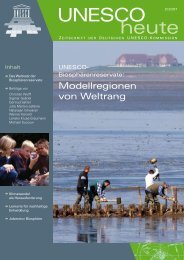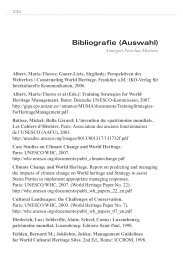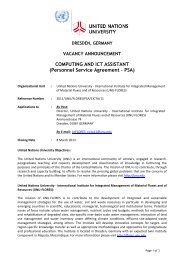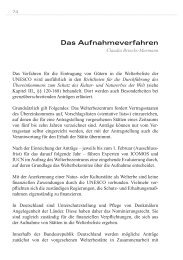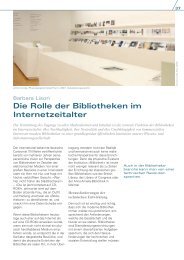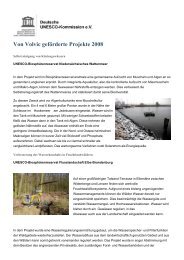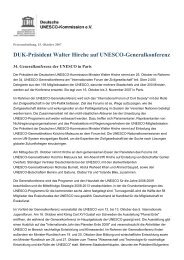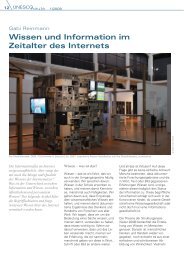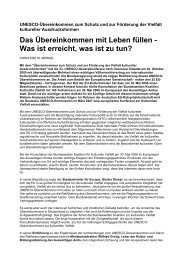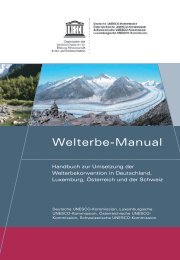Download - UNESCO Deutschland
Download - UNESCO Deutschland
Download - UNESCO Deutschland
Create successful ePaper yourself
Turn your PDF publications into a flip-book with our unique Google optimized e-Paper software.
coincidence that from 1995 onwards<br />
discrete negotiations were held by<br />
the OECD, resulting in what is often<br />
referred to by its French acronym,<br />
AMI (Accord multilatéral sur l'investissement)<br />
– soon unmasked as a<br />
'false friend' when public debate on<br />
the proposed regulations became<br />
possible. With hindsight, it is hard to<br />
fully deny the conspiratorial nature of<br />
these negotiations.<br />
What had happened? The OECD's<br />
AMI project – or MAI (Multilateral<br />
Agreement on Investment) in English<br />
– proposed to give international investors<br />
equal rights across all of its<br />
Member States. This would prevent<br />
'discrimination' by national governments<br />
in the form of preferential<br />
treatment - with no differentiation<br />
between sectors, and without the<br />
right enshrined in the GATS allowing<br />
states the discretion to propose or<br />
not such options (cf. Serge Regourd:<br />
L'exception culturelle, Paris 2002).<br />
This urgently raises the question of<br />
transparency and the need for democratic<br />
debate of such wide-ranging<br />
decisions; an issue that has recently<br />
attracted renewed attention in the<br />
wake of the referenda on the draft<br />
EU Constitution. When the OECD<br />
negotiations became known, the reaction<br />
of professional organisations<br />
in France was so intense that the<br />
Jospin government sounded a retreat<br />
in October 1998, leading to the<br />
end of the OECD project in December<br />
1998. (Since then the OECD has<br />
managed, thanks to its comparative<br />
evaluation of education systems, to<br />
regain the kind of goodwill that is intuitively<br />
accorded to any good educational<br />
reform, however questionable<br />
the methodological approach behind<br />
it may be).<br />
It is at this point, at the very latest,<br />
that we come up against a problem<br />
that has proved to be fundamental:<br />
the problem of political coherence.<br />
Paragraph 151.4 of the European<br />
Community Treaty does, in fact, contain<br />
a 'Cultural Compatibility' clause,<br />
which is a general commitment on<br />
the part of the EC to take account of<br />
cultural issues in all of its activities.<br />
However, it has become commonplace<br />
to cast doubt on the effectiveness<br />
of this commitment. It may be<br />
justified that trade and security considerations<br />
tend to take priority;<br />
nevertheless, it seems less than justifiable<br />
that, at the WTO, decisions<br />
of fundamental importance are taken<br />
as to which instruments of cultural<br />
policy are to be deemed 'superfluous'<br />
in the context of continuing<br />
deregulation. Political action is determined<br />
by the need to foresee its<br />
consequences as accurately and as<br />
completely as is possible; therefore,<br />
the participation of the competent<br />
cultural politicians in both parliament<br />
and government is to be called on<br />
whenever cultural policy is at stake.<br />
Intangible Cultural Heritage: Sanskrit theatre from the province of Kerala, the Kutiyattam. The oldest living theatrical tradition in India<br />
Photo: <strong>UNESCO</strong><br />
13


